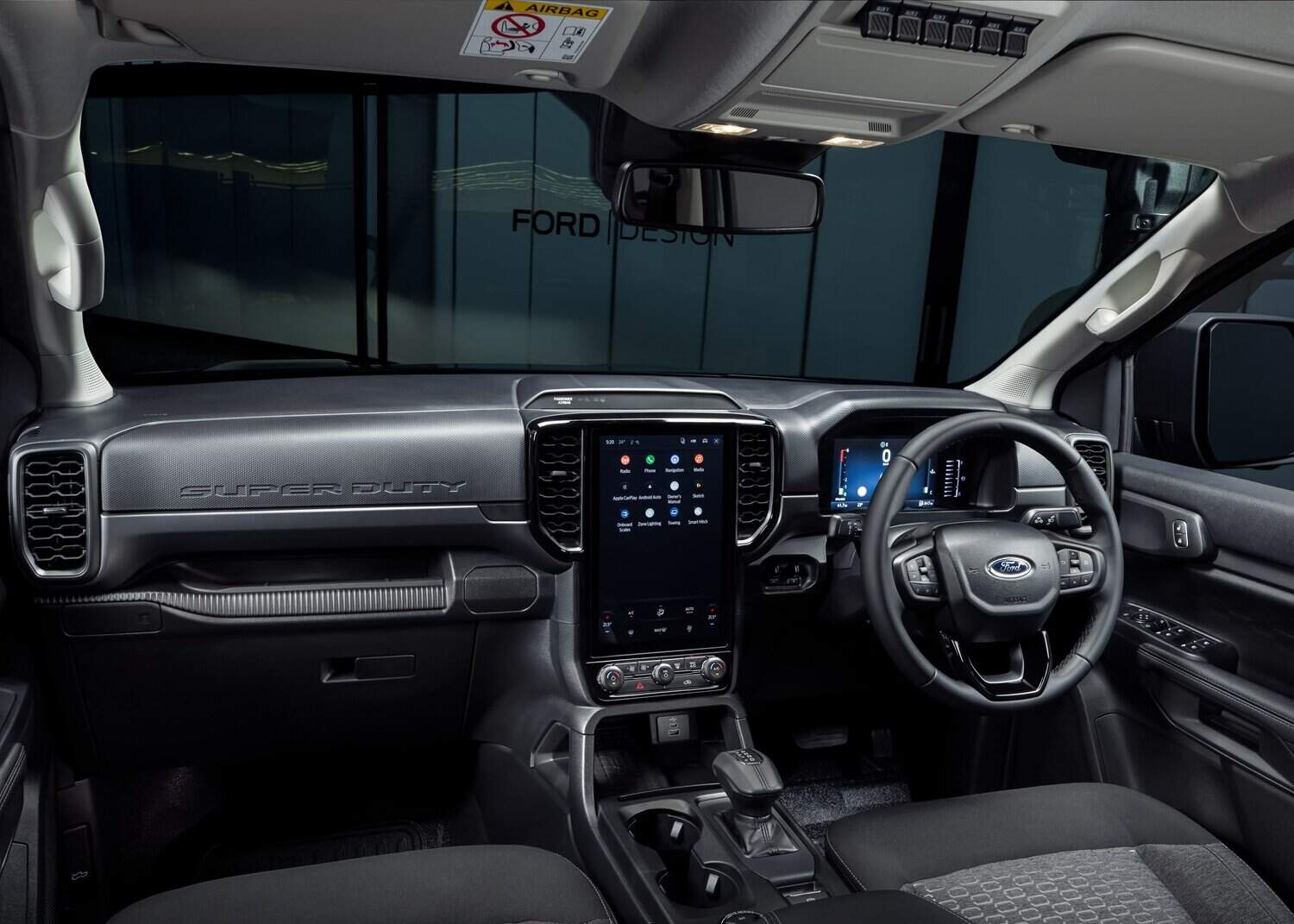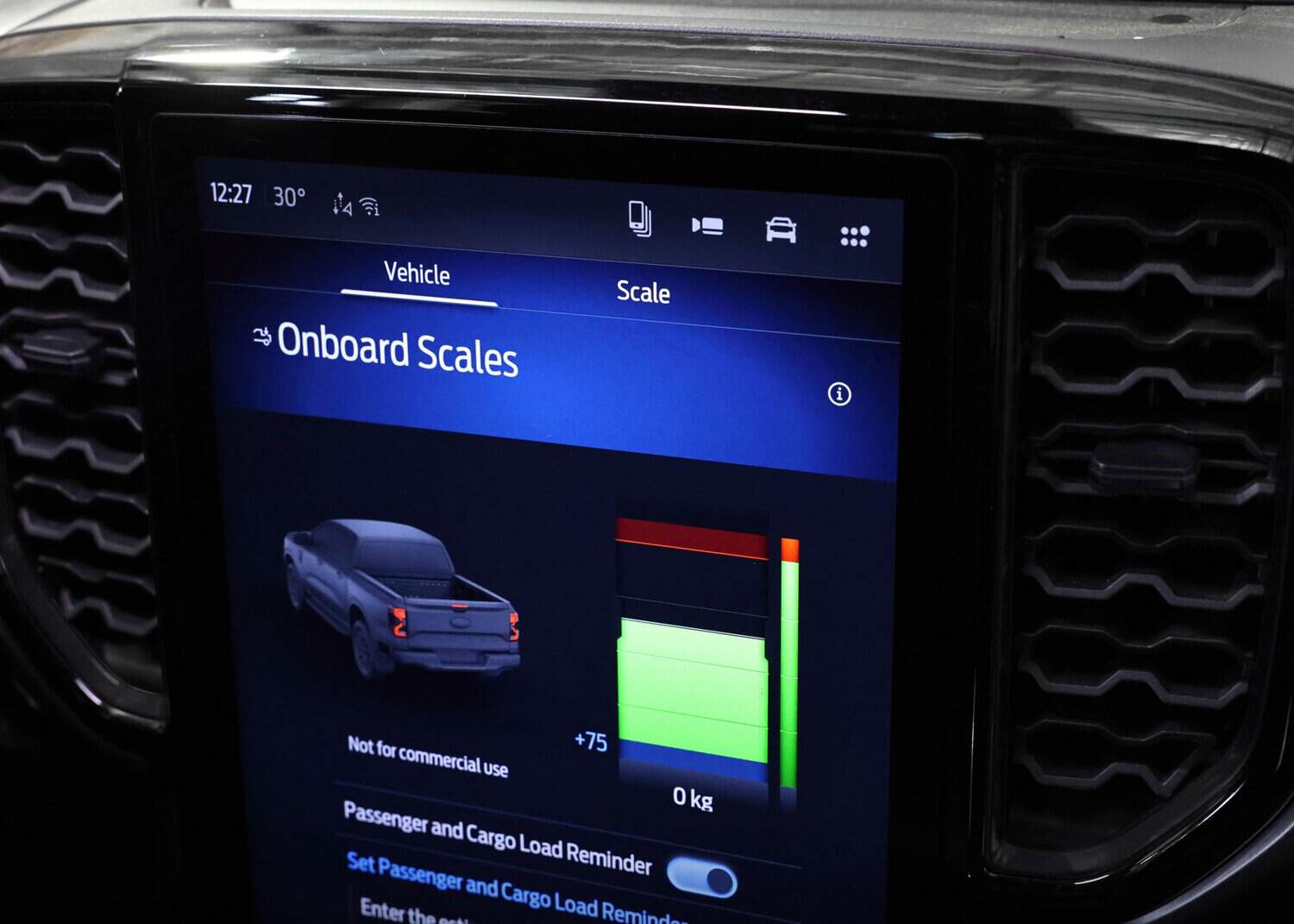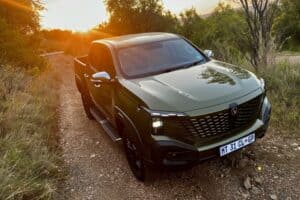Going on-sale in 2026 Down Under, Ford South Africa has yet to approve the Super Duty for the local market.

Teased sporadically and sighted on a numerous of occasions undergoing testing since the discovery of a trademark submission last year, Ford, in the early hours of Friday morning (4 April), officially debuted the first-ever Ranger Super Duty it bills as a “purpose-built truck designed for heavy-duty use”.
Ultra hardcore worker
Destined solely for Australia where the bulk of development has taken place, the Super Duty straddles the gap between the conventional Ranger and the F-150 in Ford’s bakkie range, with the Blue Oval describing the series of the modifications as having been done to prevent buyers from forking out more for aftermarket fitments.
ALSO READ: Date set: Ford Ranger Super Duty showing itself on 4 April
Shown in double chassis cab and normal double cab bodystyles, the Super Duty will also be offered in single chassis and SuperCab chassis configurations, with already known differences from the standard Ranger being a 4 500 kg tow rating, a gross vehicle mass (GVM) of 4 500 kg and gross combined mass (GCM) of over 8 000 kg.
Visually, the most rugged and workhorse-focused Ranger since the nameplate’s founding as a model of its own in 1982 gets a new grille, wider mirrors, a new bonnet with Super Duty lettering and wider wheel arches to accommodate the 33-inch General Grabber all-terrain tyres.

Along with a new steel front bumper, standard snorkel and an underbody protection steel bashplate, Ford has equipped the Ranger Super Duty with a 130-litre long range fuel tank as well as special mounts within the bumper to accommodate accessory-approved driving lights.
Somewhat surprisingly, no details were revealed about the changes to the Super Duty’s suspension, rumoured improved chassis frame, payload or ground clearance.

New, and for the first time on a Ranger, is a central locking diff-lock derived from the Bronco Raptor to go with the already present rear.
Inside
Inside, and bar the Super Duty lettering on the passenger’s side upper glovebox, no obvious changes have taken place as all variants, regardless of bodystyle, receive the six overhead auxiliary switches, the digital instrument cluster and the 12-inch SYNC 4A infotainment system.

Integrated into the latter though is an on-board scale that uses sensors built into the suspension to give an overall reading, before displaying it.
V6 only
While no direct powertrain details were revealed by Ford itself, various Australian publications report the 3.0-litre Lion turbodiesel V6 engine as having been the sole option selected for the Super Duty from the off.

Reportedly, the unit has been revised to meet European emission regulations, which could lead to it producing more or less than the 184kW/600Nm in the normal Ranger V6.

Supposedly tuned for “heavy-duty” usage, the V6 will continue to be mated to the General Motors co-developed 10-speed automatic gearbox, which also has been revised, again according to reports and not to Ford Australia.
South Africa awaits
Only going on-sale next year, at which point pricing will be announced, the Ranger Super Duty has only been approved for Australia where units – apart from the Ranger PHEV – are sourced from Thailand rather than the Silverton Plant outside Pretoria.
Additional information from carexpert.com.au and drive.com.au.
ALSO READ: F-250 light? Trademark suggests Ford plotting Ranger Super Duty
Support Local Journalism
Add The Citizen as a Preferred Source on Google and follow us on Google News to see more of our trusted reporting in Google News and Top Stories.






